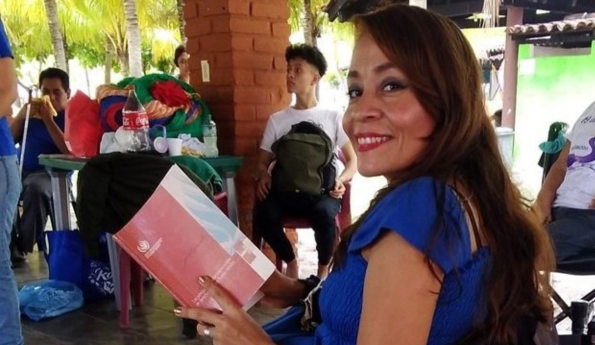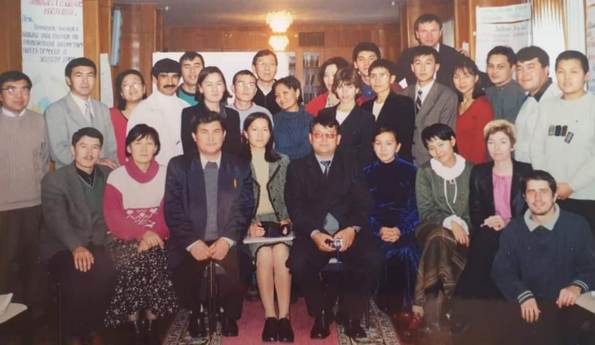By Sophia Pauken, Intern, Program Quality and Learning
SID-Washington is the largest and most active chapter of the Society of International Development, an international network devoted to sustainable economic, social, and political development. On May 31, SID-W hosted their 2018 annual conference, The Future of Development in a Rapidly Changing World. As an intern with Counterpart International, I had the opportunity to attend the closing plenary, “A Conversation with Senior House and Senate Staff.”
This panel discussion was moderated by George Ingram, Co-Chair of the Modernizing Foreign Assistance Network and Senior Fellow of Global Economy and Development at the Brookings Institution, and featured Joan Condon, Sr. Professional Staff Member, U.S. House of Foreign Affairs committee; Josh Klein, Sr. Professional Staff Member, Development, USAID, Energy & Environment, U.S. Senate Foreign Relations Committee; and James Walsh, Legislative Director, U.S. House Foreign Affairs Committee.
This year’s conference focused on the three Ds of U.S. engagement: Diplomacy, Development, and Defense. Working in a bipartisan manner and exemplifying good leadership is the key to achieving success in development, said the panelists, who come from both sides of the aisle. This was both interesting and relieving to hear, particularly given the climate of U.S. politics and the divisive language dominating mainstream news these days. It was promising to hear Hill staffers remind us that humanitarian issues are problems that all people must work together to solve, regardless of politics.
Klein made the point that foreign aid expenditures are small, yet have a huge impact on improving lives around the world. USAID and other international development agencies need to start investing more in preventing conflict (i.e. building resiliency and stabilization against shocks and underlying drivers of conflict – including environmental crises, economic instability, and political uncertainty – as Counterpart strives to do around the world) rather than going into millions of dollars of debt later, he argued.
Joan Condon went on to discuss the “Do’s and Don’ts” of international development funding. First, don’t panic! Condon noted that although President Trump’s administration states it is cutting budgets for foreign aid, every president has made similar statements. Often, these are political games and shouldn’t distract from the real work of helping communities. Do be proactive and discuss stories. Don’t obsess over numbers but do focus on the outcome of budgets and spread the story. Finally, do demonstrate a commitment to learning and adapting.
Several of these tips struck a chord with me, as that they were often the opposite of what I had previously been taught. In my classes at university and in past internships, I had learned that budgets control everything. While interning for USAID, I spent considerable time researching and analyzing budget figures and trends, which led me to believe budgetary considerations drove foreign policy. Due to what I’ve heard at the SID conference and during my time at Counterpart, however, I’ve expanded my thinking. While I still think being aware of budget allocations is important, it is also worth considering the other side of the equation: how funding is allocated based on strategic national interests and how foreign assistance programs can make a positive difference in people’s lives.
James Walsh reminded us that Ambassador Mark Green is always saying that the goal of development is to end the need for international development. Simply put, we – the international development community and practitioners – should constantly be striving to work ourselves out of a job and empower the communities that we work with to support themselves. We are on “a journey to self-reliance,” as USAID would say. The world and policies are ever-changing; our programs and proposals should be adaptive and flexible too.
For me, the primary takeaway of this event is that sustained stability requires a comprehensive focus on development, diplomacy, and defense. Always work with others in a bipartisan matter, and remember that what matters most is the goal of all development work: self-reliance.
Photo Credit: Rodney Choice/Choice Photography/




